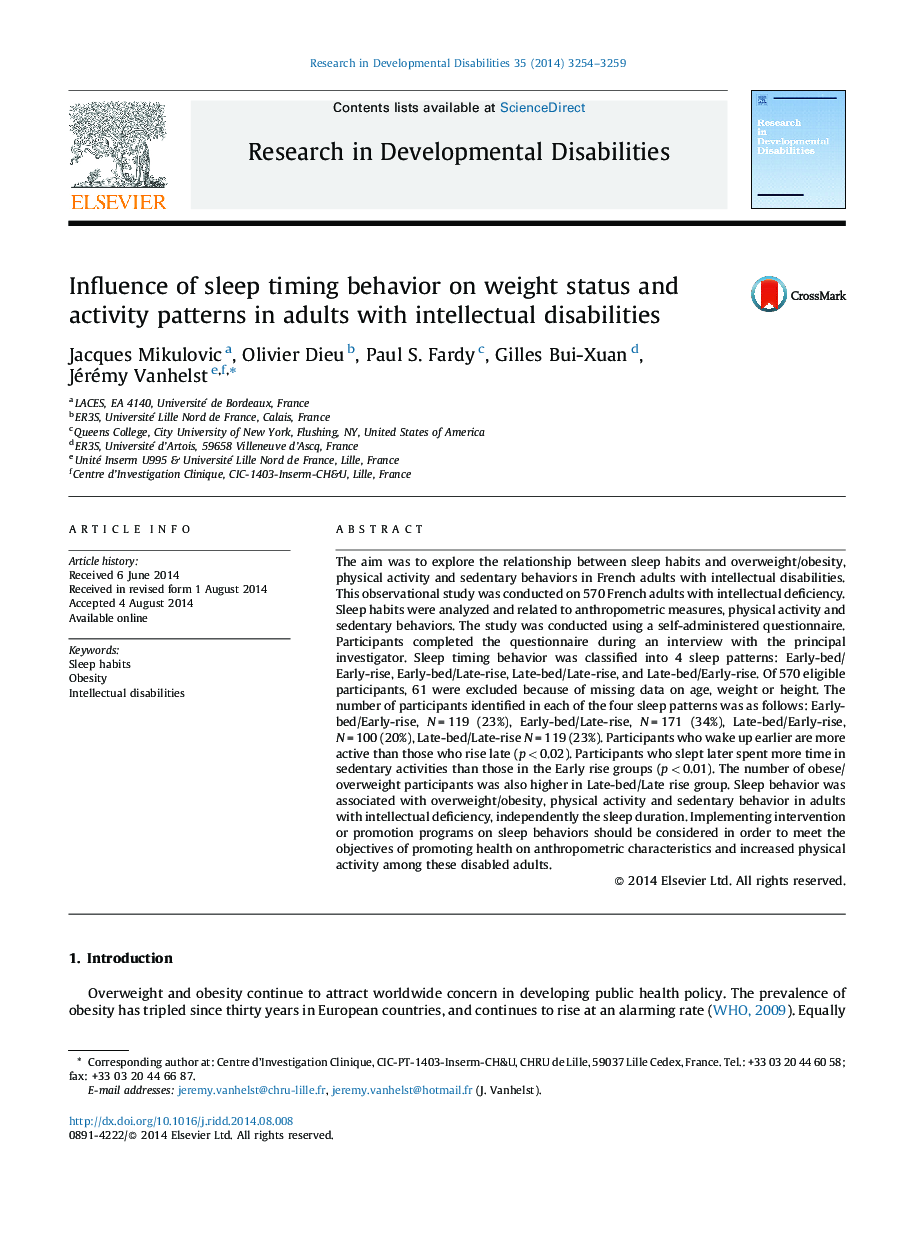| Article ID | Journal | Published Year | Pages | File Type |
|---|---|---|---|---|
| 10317424 | Research in Developmental Disabilities | 2014 | 6 Pages |
Abstract
The aim was to explore the relationship between sleep habits and overweight/obesity, physical activity and sedentary behaviors in French adults with intellectual disabilities. This observational study was conducted on 570 French adults with intellectual deficiency. Sleep habits were analyzed and related to anthropometric measures, physical activity and sedentary behaviors. The study was conducted using a self-administered questionnaire. Participants completed the questionnaire during an interview with the principal investigator. Sleep timing behavior was classified into 4 sleep patterns: Early-bed/Early-rise, Early-bed/Late-rise, Late-bed/Late-rise, and Late-bed/Early-rise. Of 570 eligible participants, 61 were excluded because of missing data on age, weight or height. The number of participants identified in each of the four sleep patterns was as follows: Early-bed/Early-rise, N = 119 (23%), Early-bed/Late-rise, N = 171 (34%), Late-bed/Early-rise, N = 100 (20%), Late-bed/Late-rise N = 119 (23%). Participants who wake up earlier are more active than those who rise late (p < 0.02). Participants who slept later spent more time in sedentary activities than those in the Early rise groups (p < 0.01). The number of obese/overweight participants was also higher in Late-bed/Late rise group. Sleep behavior was associated with overweight/obesity, physical activity and sedentary behavior in adults with intellectual deficiency, independently the sleep duration. Implementing intervention or promotion programs on sleep behaviors should be considered in order to meet the objectives of promoting health on anthropometric characteristics and increased physical activity among these disabled adults.
Related Topics
Life Sciences
Neuroscience
Behavioral Neuroscience
Authors
Jacques Mikulovic, Olivier Dieu, Paul S. Fardy, Gilles Bui-Xuan, Jérémy Vanhelst,
